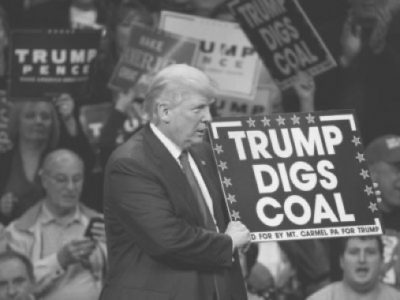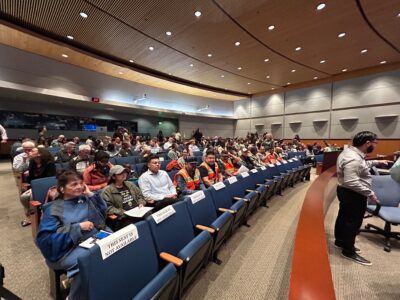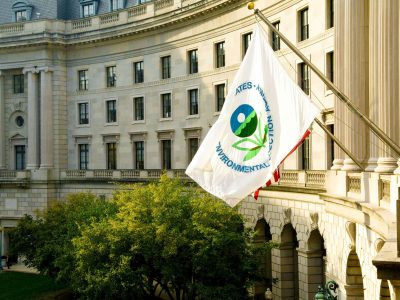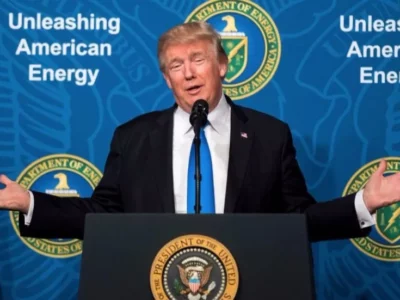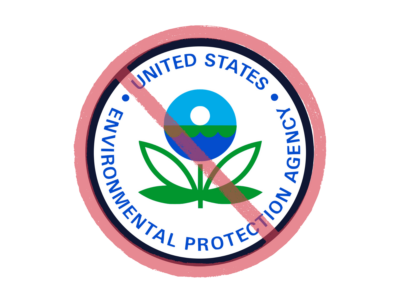Air Quality
Why Do Heat Pumps Have a Bad Rap? Lies
The Drain is a weekly roundup of environmental and climate news from Legal Planet.
I just listened to dozens of people tell me that heat pumps don’t work, may cause homelessness, and can bankrupt small businesses. This was shocking news to me, in no small part because I’m currently in the process of installing a heat pump in my condo. Obviously, I don’t want to waste money, sleep on …
Continue reading “Why Do Heat Pumps Have a Bad Rap? Lies”
CONTINUE READINGCan Trump Save U.S. Coal? Not likely.
“Beautiful clean coal”, as Trump calls it, is inexorably declining.
The title of one of Trump’s executive orders is “Reinvigorating America’s Beautiful Clean Coal Industry.” That order says, “it is the policy of the United States that coal is essential to our national and economic security.” But Trump’s efforts seem unlikely to make a dent in the long-term, global malaise of the coal industry, or its sharp decline in the U.S.
CONTINUE READINGWhy Did SoCal Air Regulators Reject Clean Air Rules?
SCAQMD’s failure to pass Rules 1111 and 1121 on water heaters and furnaces is a win for gas industry disinformation and a loss for public health.
After 6 hours of public comment and discussion in a packed auditorium, Southern California air quality regulators on Friday rejected a pair of proposals that would have reduced harmful pollution from gas furnaces and water heaters. I watched a livestream of the 6-hour meeting (and provided live updates and commentary on Bluesky). Here’s context and …
Continue reading “Why Did SoCal Air Regulators Reject Clean Air Rules?”
CONTINUE READINGThese SoCal Clean Air Rules are Being Smeared
Legitimate affordability concerns are being weaponized by the gas lobby and its supporters ahead of an important SCAQMD vote to encourage cleaner appliances.
After years of rule development, Southern California air quality regulators are set to vote tomorrow on a pair of proposals that would reduce harmful pollution from gas furnaces and water heaters. A coordinated campaign by opponents including SoCalGas is painting these relatively moderate rules as a “ban” on gas appliances and an attack on middle-class …
Continue reading “These SoCal Clean Air Rules are Being Smeared”
CONTINUE READINGSupply-Side Regulations & Clean Vehicles
As Congress votes to undermine California’s sovereignty to set supply-side standards on polluting vehicles, CLEE’s research shows why these policies are so effective
In May 2025, both the U.S. House and Senate passed resolutions to revoke California’s Clean Air Act waivers, which allow the state to enforce stricter vehicle emissions rules than federal standards (see Ann Carlson’s post on this issue). If signed by the President—and if successful in the face of court challenges to their dubious legality—these …
Continue reading “Supply-Side Regulations & Clean Vehicles”
CONTINUE READINGGas Price Politics and Desperate Moderates
The Drain is a weekly roundup of environmental and climate news from Legal Planet.
In 18 years of working in newsrooms around Los Angeles, I talked with lots of political campaigns — but a phone call from Antonio Villaraigosa in spring of 2018 stands out. I was at my desk in the cramped newsroom of KCRW, sitting in between All Things Considered host Steve Chiotakis and producer Ben Gottlieb, …
Continue reading “Gas Price Politics and Desperate Moderates”
CONTINUE READINGWhat Happened to EPA Enforcement?
Enforcement efforts peaked long ago and have been in long-term decline. Trump will accelerate that.
There has been a long-term decline in EPA enforcement since the late Bush Administration. The numbers raise three questions: What’s behind the long-term trend? Why has pollution generally continued to decline despite weaker enforcement? And how bad will things be under Trump II? As to the third question, Trump has already made it clear that we can expect environmental enforcement to crash and burn in the next four years.
CONTINUE READINGExecutive Disorders
One after another, Trump has let loose destructive blasts at the environment to promote fossil fuels, mining, and logging.
We all know that Trump has issued a slew of executive orders since taking the oath of office. We also know that many of these are aimed to promoting fossil fuels, mining, and logging at the expense of the environment, while disfavoring renewable energy. Still, it’s impressive when you put the list together to see the full onslaught.
CONTINUE READINGEPA Steps Through the Looking Glass
You can’t accuse EPA of hiding the ball. It has announced its new mission: promoting fossil fuels.
You might have thought the prime mission of the Environmental Protection Agency was protecting the environment. Lee Zeldin, the Trump appointee running EPA, has a different idea: “The EPA is going to aggressively pursue an agenda powering the Great American Comeback… that’s our purpose, and it’s what will keep us up at night.”
CONTINUE READINGModernizing Air Permitting in California
Guest Contributor Craig Segall writes that SB 318 would help clean up factories and other big industrial sources by pulling permitting practices into this century.
Almost every major industrial and power facility in California needs an air permit when it’s built or renovated. That’s a huge opportunity to rapidly advance the zero and near-zero technologies that Congress invested in in the Inflation Reduction Act, and that we urgently need to meet ever-more-pressing air quality challenges, especially as attacks from the …
Continue reading “Modernizing Air Permitting in California”
CONTINUE READING




